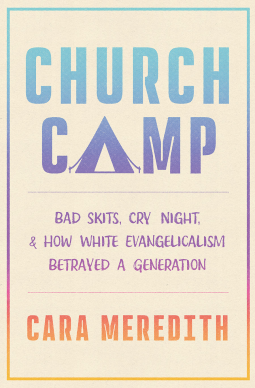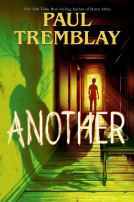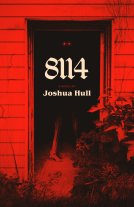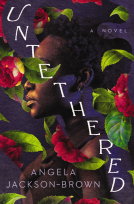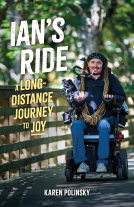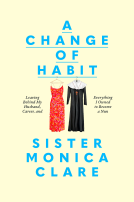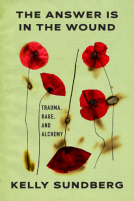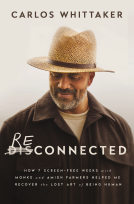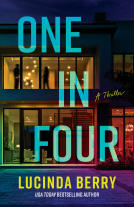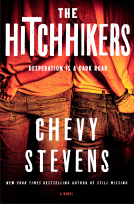Church Camp
Bad Skits, Cry Night, and How White Evangelicalism Betrayed a Generation
by Cara Meredith
You must sign in to see if this title is available for request. Sign In or Register Now
Send NetGalley books directly to your Kindle or Kindle app
1
To read on a Kindle or Kindle app, please add kindle@netgalley.com as an approved email address to receive files in your Amazon account. Click here for step-by-step instructions.
2
Also find your Kindle email address within your Amazon account, and enter it here.
Pub Date Apr 29 2025 | Archive Date Not set
Talking about this book? Use #ChurchCamp #NetGalley. More hashtag tips!
Description
"A bruising exposé of Christian summer camps as an extension of a poisonous white evangelical culture...This is sure to spark debate."
—Publishers Weekly
Excavating a sometimes wacky, and equally harmful, part of white Evangelical culture.
Roasted marshmallows, campfire stories, shaving cream battles--for some of us, Christian summer camp is where we felt most at home, where we could be the most authentic versions of ourselves. But for campers at white Evangelical church camps in particular, camp was also often the place to inherit a toxic image of God and of each other. From purity-motivated admonitions not to "make purple," to the emotional manipulation of "Cry Night," to the utter lack of diversity among campers and staff, the culture of white Evangelical camps has too often betrayed a generation.
In Church Camp, longtime camp speaker Cara Meredith exposes the ways in which white Evangelical camps sold individualized versions of Jesus to impressionable youth. Campers were forced to "sit with their sin" so they could fully understand God's conditional love. Camp life emotionally coaxed campers into making a formative commitment to Christ (and therefore to white Evangelical subculture). Further, camps commodified the faith of these young people to bolster their own funding and power.
Along the way, Meredith weaves in notable history of the camping movement, revivalism, and white Evangelicalism. She asks profound questions about who God is and what it means to be human. Following the progression of a typical week at camp, Church Camp weaves together Meredith's own story and the powerful stories of dozens of other former campers and camp staff members. Along the way, she invites us into the tension of accounting for our past while moving toward a better future.
Whether you went to church camp or not, whether you loved camp or hated it, Church Camp will peel back the layers, hold the powerful accountable, and help you envision a more vibrant, loving, and inclusive faith.
Advance Praise
"A bruising exposé of Christian summer camps as an extension of a poisonous white evangelical culture...This is sure to spark debate."
—Publishers Weekly
“This evocative book is an elegy over white evangelical church camp culture from one who was once among the leaders of this multibillion-dollar industry. Church Camp deconstructs the theology and culture of this industry, making it a significant contribution to the comprehensive reconsideration of white evangelicalism currently taking place. Highly recommended!”
—David P. Gushee, author of The Moral Teaching of Jesus
“As someone who has spent many years wrestling through the scattered carnage of my own experiences with white evangelicalism, I didn’t realize how important it was for me to hear this particular story told in this particular way. If you’ve experienced church camp from the ‘inside’—either as a camper or as a staff person or (as is the case for most of us) both, I cannot recommend Church Camp highly enough. I want to get it in the hands of everyone I shared that experience with, to give us a chance to voice what was troubling and to consider how to live into a different way of experiencing the sacred together.”
—Jessica Floyd, therapist and former camp program staff
“Speaking the familiar language of chilly mornings and muggy days, Church Camp peels back the nostalgia and shines light on both the fruit and the flaws of an evangelical rite of passage. Through personal experience and detailed research, Cara Meredith points toward faith formation that refuses shame, squashes fear, and embraces hope in the mystery. This book is for every camper who fought to belong or started asking better questions. It is for anyone who wants to sit in the warmth of God’s unconditional goodness.”
—Shannan Martin, author of Start with Hello and The Ministry of Ordinary Places
“Church Camp captures the feelings and love that camp life engenders, but then asks the hard questions about the institution itself. Cara Meredith doesn’t shy away from writing about complicated subjects that plague modern religion and camp: race, gender, and ultimately if evangelicalism is even a viable path forward. I found it to be a surprising page-turner and read it in one sitting, intrigued by the structure of following a week at camp, entertained throughout, and curious from start to finish. I absolutely recommend this book to anyone who ever set foot in a summer camp.”
—Buren Renick III, COO and former senior camp counselor
“I spent many childhood summers in the colorful, complicated world Cara Meredith describes so deftly in this thoughtful and searingly honest book. I remember the gooey s’mores, the star lit hikes, the cheesy skits—and the powerful, quietly insidious culture of white evangelicalism that undergirded the whole experience, especially for those of us who attended church camp as children of color. Meredith doesn’t shy away from this insidiousness; she exposes and dismantles it. Using the very words and stories she once shared so earnestly with children during her years as a camp speaker, she describes a religious subculture bent on priming and converting children not simply to Christianity but to the cultural norms, beliefs, and assumptions of white American evangelicalism. She describes who benefited from this endeavor, and who got hurt. Who found faith, and who lost it. Most importantly, Meredith shares her own journey of an evolving and nuanced spirituality—one that allows her to remember church camp as a sacred place that formed her in so many beautiful ways, even as she also grieves over the God it misrepresented, the culture it perpetuated, and the children it harmed. This is a searching and necessary book—a testimony to the power of telling hard, healing truths about the places we have loved.”
—Debie Thomas, author of A Faith of Many Rooms and Into the Mess and Other Jesus Stories
“With humor and tenderness, just as Cara tells my story, I am confident she describes many of your stories too. Readers should prepare to measure their own experiences as they sift through the pages of Church Camp, entirely because Cara brilliantly paints and weaves her own church camp life alongside many of ours.”
—Joey Lynne, business owner; former camper and counselor
“If I could trade attending church fifty-two times a year and attending church camp for one week per year, I’m pretty sure I’d pick camp. That’s how powerful camp experience was in my spiritual and human upbringing. But it would not be the kind of camp I grew up with. It would be the kind of camp Cara Meredith points to in her book Church Camp. This book tells the truth about what’s wrong with conventional Christian camps while celebrating the undiscovered promise camping holds for those who dare to seize it.”
—Brian D. McLaren, author of Do I Stay Christian? and Faith After Doubt
“Cara Meredith tackles the topic of evangelical church camp—something so many of us deeply love and are also deeply wounded by—with bravery, kindness, and incisive truth-telling. Her experiences resonate with those of us who spent decades of our lives working in Christian camping: we loved it but didn’t understand at the time the damage it was doing, and many of us have now come to realize it was incredibly problematic. Cara handles these issues with an unwavering honesty, inviting us to reexamine why we held church camp dear and to advocate for a more inclusive, Christ-centered way forward. If you grew up attending or working at this type of camp, I recommend that you read this book.”
—Holly Hoeksema, professional development coach; former camp director and camp speaker
“It’s rare to find a book that’s capable of holding the tension of the both/and when it comes to the sacred, but Cara Meredith has accomplished just that in her newest release, Church Camp. As a former church camp kid, I experienced a flood of memories upon reading, during which I found myself both laughing and nodding in agreement. This book will not only help you reminisce about the past; it will spur you to dream about what the future could be.”
—Jonathan Merritt, award-winning columnist and author of Learning to Speak God from Scratch
"If you grew up in white evangelicalism, you probably had an experience at a Christian camp of some sort. In Church Camp, Cara Meredith does a magnificent job of meshing the historical view of this phenomenon alongside personal insights to normalize and maybe even move on from these sometimes utterly bizarre experiences. I highly recommend!”
—Kurt Kroon, co-pastor at Cascade Church Portland and former camp program director
“In Church Camp, Cara Meredith transports me to the world of so many of my own summers. Beautiful settings in the mountains, the buzz and energy of a group of young people in a place set apart for something special, late-night conversations about a world-shattering faith. Walking us through the fascinating subculture that is a staple of evangelical Christianity, Cara does not hold back from the historical, critical, and theological in her weaving together a variety of first-person narratives with song lyrics and the sequence of familiar talks. She shows us the hidden but not always subtle entanglements of whiteness and privilege in the overarching project around conversion. But Cara offers, too, a surprising and different way into an experience—with all its flaws and quirkiness—that might actually tell us something surprising about humanity. She gives a glimpse in the prologue: ‘…it’s a book about the tenacity of plain old human beings like you and me who learn how to hold on tight to a thing called hope.’ So grateful for the immense thoughtfulness and care in this work.”
—Mihee Kim-Kort, author of Outside the Lines: How Embracing Queerness Will Transform Your Faith
Marketing Plan
National and online publicity campaign targeting news media interested in this topic and Christian and spirituality media
Trade and Christian advertising
Social media and digital campaign targeting millennials and Gen X, progressive Christians, and those interested in faith deconstruction/exvangelicals
Deconstruction/exvangelical and progressive Christianity influencer outreach
Events and speaking opportunities including bookstore readings and guest preaching
Limited podcast series based on the book's themes
Available Editions
| EDITION | Hardcover |
| ISBN | 9798889831006 |
| PRICE | $26.99 (USD) |
| PAGES | 226 |
Links
Available on NetGalley
Featured Reviews
I suppose it could be said that I'm not exactly the target reader for Cara Meredith's "Church Camp: Bad Skits, Cry Night, and How White Evangelicalism Betrayed a Generation."
After all, I wasn't exactly raised evangelical. I was raised Jehovah's Witness, and we sure didn't have church camps.
I didn't really reach the evangelical world until my late teens and early 20s. It was long after the JW's had tossed me aside, shunned because of sexual abuse I was told was my fault.
So, I have no experience with camp other than a few years spent attending Indiana's Camp Riley, a camp dedicated to children with disabilities.
While I'm not quite the target audience for "Church Camp," I resonated with this biting and yet surprisingly tender exploration of a world that provided a home away from home for many evangelicals - though, it must be said, mostly white evangelicals in their teens and young adulthood who would start off as campers and eventually move into various roles of responsibility.
Yet, as Meredith quickly points out it's also often the place where those of us who do identify as Christian, myself included, inherited a toxic image of God and of each other. A longtime camp speaker, Meredith takes us through it all from purity-driven admonitions to the infamous and emotionally manipulative "cry nights" to commodified faith and "heat of the moment" faith commitments born as much out of peer pressure as they were any genuine expression of faith.
Truthfully, I can't help but return to that word "tenderness" word again and not just because it's my favorite world in the human language. I was sort of enveloped by the tenderness of Meredith's writing, somehow managing to acknowledge toxic faith without making faith itself toxic.
It's a gift and I really appreciated it.
Throughout "Church Camp," Meredith immerses us in the history of the camping movement, revivalism, and white evangelicalism. She lays bare truths about, in particular, one-week camps with each day's theme and how they built upon one another. There's a sense of melancholy as she short of confesses her own involvement in this toxicity and those moments when she began to realize that things were changing inside her. Meredith shares her own experiences, that's for sure, and yet she invites others to share theirs as it becomes clear this wasn't just a one-off experience but an actual movement that occurred over and over and over again.
Truthfully, I've always wanted to go to "church camp," though I'm now in my 50s and church camp these days, having become a fairly new Presbyterian (PCUSA), would involve something resembling adult summer camp.
I practically wept...okay, I did weep as Meredith shared the ways in which church camps have excluded, whether by race or ability or any number of other measures. Having visited a few church camps, I must admit that I'm always struck by how inaccessible they really are and how difficult it would be for me to function even as a relatively independent disabled adult.
I don't know. What can I say? I can say I expected something a little different from "Church Camp," perhaps something a little more bitter and yet something pretty miraculous happens along the way as Meredith paints us all toward a better way, a healthier faith life, and even a different vision for church camp.
In the end, I'm not really sure I'd ever want to experience the kind of toxic experiences Cara Meredith writes of in "Church Camp," however, the church camp she dreams of sounds pretty amazing.
 Sydney H, Reviewer
Sydney H, Reviewer
Thanks to NetGalley and Broadleaf for the eARC!
I really enjoyed this book. I think Meredith has a way with words and exploring ideas that I've had swirling around in my brain but been unable to pin down for myself.
While I don't have a TON of camp experience, I was a camp counselor for a number of my high school years, and I went to a couple of YoungLife camps when I was helping out with a youth ministry.
This introduction felt like coming home - I could tell she knew what she was talking about - that she at one point held camp as a sacred place, but that she understood that there are things we didn't know then but that we know NOW that change the way we look at things.
There were a couple of places where I wish she had gone into more detail about what was bothering her or what changed her mind, but I think she asked a lot of really good questions.
Would highly recommend for any deconstructing (or deconstructed) Christians, or any Christians who wonder if the God we learn about at camp is really a good being, or if, perhaps, there might be a better way.
Maybe you can tell I'm still trying to digest this book, but I really, really got a lot out of it.
 Educator 630281
Educator 630281
This is not the typical book I would choose to read. But as a former church camp kid, I was intrigued. The author took me right back to the days of shaving cream fights and bunk beds in cabins. As someone who has left the church i appreciated the reflection of the author. Looking back on the summers now I do see them in a different light and found this book to be very in line with how I feel.
 Beth V, Reviewer
Beth V, Reviewer
Oof what a book. There were a ton of lines in this book, especially early on, that I noted to journal through. Many that put many of my own discomfort with evangelical theology and its type of evangelism into words. It's important to note that while this is part-memoir, the author's deconstruction did not lead to a loss in faith. She is still a Christian, just a different sort than she was when she was working at the church camps.
This was a thoughtful and incisive look at white evangelical church camp that I hope spurs on more conversations. As Meredith mentioned, it was harder to get interviews from BIPOC former campers for whom camp was a traumatic week rather than the "best week of their life."
This book is organized like a typical week at church camp:
1. Welcome to Camp!
2. God the Mostly Father
3. Superhero Jesus
4. Dirty Rotten Little Sinners
5. Cry Night
6. Side Note, Rose Again
7. Now Go and Live the (White) Way of Jesus
For me, most of my own highlights were in the first half of the book. The second half was rough, and I found myself rushing through just because I was feeling triggered by my own evangelical church trauma. If you grew up in white evangelical culture but was in any way marginalized, I think you might also really enjoy the labeling in the first half and then need a bit of time to rest from Day 4 and onward when Meredith discusses the manipulative parts of evangelical Gospel messages. It is affirming to hear someone else say that yeah, they really are just trying to hit a KPI for salvations, but it still sucks. Also very helpful to see someone point out that white evangelicalism is trying to convert you to white, cishet, able-bodied Christianity and it excludes those of us who are not.
The Navigators, the evangelical group I was in, is mentioned on page 13, but not much beyond that, I'm guessing because it's primarily a college parachurch organization. Young Life and FCA were mentioned much more.
Meredith has done her reading and cites some excellent writers and theologians, in addition to the former campers and camp staff. As a person of color, I especially liked her quote from pastor Jared Stacy who pointed out in a 2021 blog that evangelicals focusing on "just preach the gospel" was a way to reject social justice because hey, if only Jesus matters, you don't need to worry about earthly things like power and change. I love a book that has a good bibliography, and this one has about 17 pages of endnotes.
For me, this book was helpful for labeling. I think this is a good resource for those deconstructing their evangelical childhoods and for those who want to understand. I'm not sure you'll necessarily feel inspired, but at least you won't feel crazy or alone.
Thanks to Netgalley and Broadleaf for this ARC.
 Reviewer 1727327
Reviewer 1727327
I was really excited to read this book. I grew up in white evangelicalism, albeit in the UK rather than the US. White evangelical culture has its differences here, but many aspects have been somewhat exported from the US to the UK, and ‘church camp’ culture is definitely one of those aspects.
Reading this book as someone who experienced a lot of the culture described here was deeply validating. I’ve been in a ‘deconstructing’ period with my faith for over a decade now, and I’ve read many works and memoirs on experiences with white evangelicalism in that time. I will say that this is probably one of the books I’ve read that has most validated the extremely weird and complicated feelings that come with growing up in a faith and then later coming to realise the harm that the toxic theology you’ve been exposed to and perpetuated has caused to yourself and other people. It’s extremely hard to explain or convey how you can be almost nostalgic for places that were actively harmful for you, because they were also somehow places where at one point you felt deep joy and belonging. I felt this book and the author really well explained and validated that feeling, and it was an emotional read.
I also want to say this book is extremely well referenced and researched, and I found some great new resources and reading material in the footnotes. If you’re expecting purely a ‘memoir’ this is not what this is book is, but the deeply researched and well thought out explorations of why white evangelical church camp culture is the way it is (and also what we could do instead!) are very important.
I do think this book is a little ‘niche’, in the sense that I think someone who hasn’t experienced white evangelicalism would be quite lost reading this. Having said that- for those of us who did experience and grow up in that culture, especially those of us who have trauma associated with it, this will be an important, emotional and validating read.
Thank you very much to Broadleaf Books and NetGalley for the ARC!
